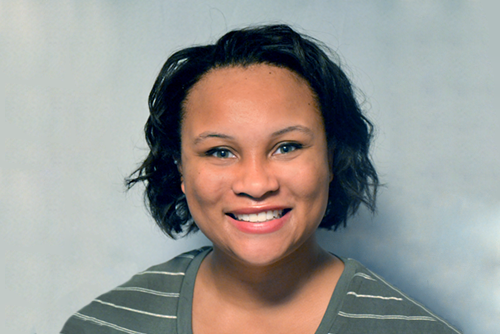PHX Perspectives | April 1st, 2020
During my sophomore year of college at the University of Missouri, I joined Sexual Health Advocate Peer Education (SHAPE), a peer education organization that taught sexual health on and off-campus, supplied free sexual health safety products and help run biannual free and confidential sexually transmitted infections (STIs) testing for students. In order to be a member of SHAPE, I had to go through two courses to learn presentation and facilitation skills as well as the sexual health content I would be entrusted to teach. One of the most interesting things I learned was that sexual health education is not a nationally mandated education for students in the United States. The curriculum varies by the states that offer the course and only a handful of states require the information presented to be medically accurate. The inconsistency I found in a critical part of adolescent health education became the catalyst for my interest in a public health career.
The three greatest lessons I have learned in public health thus far are the importance of perspectives, the need to incorporate intersectionality and the benefits of lifelong learning.
Public health has taught me that there are many ways to combat a problem and how important it is to listen to everyone’s viewpoint. I learned the value of community engagement because without the population as a stakeholder, any public health efforts could be creating more harm than good and unintentionally reinforce structural inequities. In SHAPE, I practiced this by asking students what they wanted to learn directly so my lessons would be tailored to meet their individual needs and be relevant. I provided opportunities for evaluation after every course so I could learn what was working and what areas needed growth. From that experience on, I have learned how important and beneficial it is to incorporate the community into any intervention or research proposed.
Intersectionality looks into how our social identities (race, gender, sexual orientation, physical ability, etc) overlap and how each one provides someone with multiple factors that can produce privileges and/or disadvantages. For example, Black bisexual women may simultaneously experience racial discrimination, homophobia and gender bias. As a SHAPE peer educator, this encouraged me to always understand how different identities may place additional barriers for access to STI testing and treatment. It showed me that it’s important that public health never being a one-size-fits-all approach. As public health practitioners, we must always be aware of how these identities intersect and how that might contribute to poorer health outcomes.
Finally, public health always encourages me to never to let my education end in a classroom and to always pursue opportunities for lifelong learning. The field of public health is always developing; we are seeing that to be true in our contemporary moment of the COVID-19 pandemic. The needs and resources of the communities we serve are never concrete and we have to adapt to ensure we do not miss the mark of alleviating health outcomes. Public health challenges us as professionals to grow, learn and adapt in our ever changing world. I have dedicated myself to a life of learning. This quest for knowledge led me to be the only undergrad student at the Sex and Gender Health Education Summit in 2018, it inspired me to pursue my master’s degree at Boston University School of Public Health and it pushed me to apply for this internship with Population Health Exchange (PHX). Public health has truly led to me learning new things every single day.
This summer, PHX is offering two week-long summer programs where students will gain an immersive and educational introduction to public health through PopHealthExperience and Master Academy in Population Health. 7th-10th and 11th-12th graders, respectively, will have their chance to learn more about perspectives, intersectionality, and continuing education opportunities. Just by participating in our programs, students will view different perspectives and gain the tools to assess and analyze a problem through a public health lens, which is not traditionally part of a high school curriculum.
Students will begin the week learning about the foundations of public health, including intersectionality. As they master the concept of intersectionality, students can apply their understanding of equity and systems of oppression as they spend the remainder of the week exploring Environmental Health, Epidemiology and Biostatistics.
As our students complete the program, we know they will leave with a new set of skills, the ability to think critically and a newfound passion for public health that pushes them to further their knowledge. I am looking forward to working directly with our students during our summer programs and I hope to inspire future public health leaders to learn some lessons of their own.
The PHX Perspectives blog is a platform that creates an opportunity to share public health stories and viewpoints. Anyone interested in submitting a piece, which should be 600-800 words long, should contact phx@bu.edu. Population Health Exchange reserves the right to reject or edit submissions. The views expressed are solely those of the author and are not intended to represent the views of Population Health Exchange or Boston University School of Public Health.

